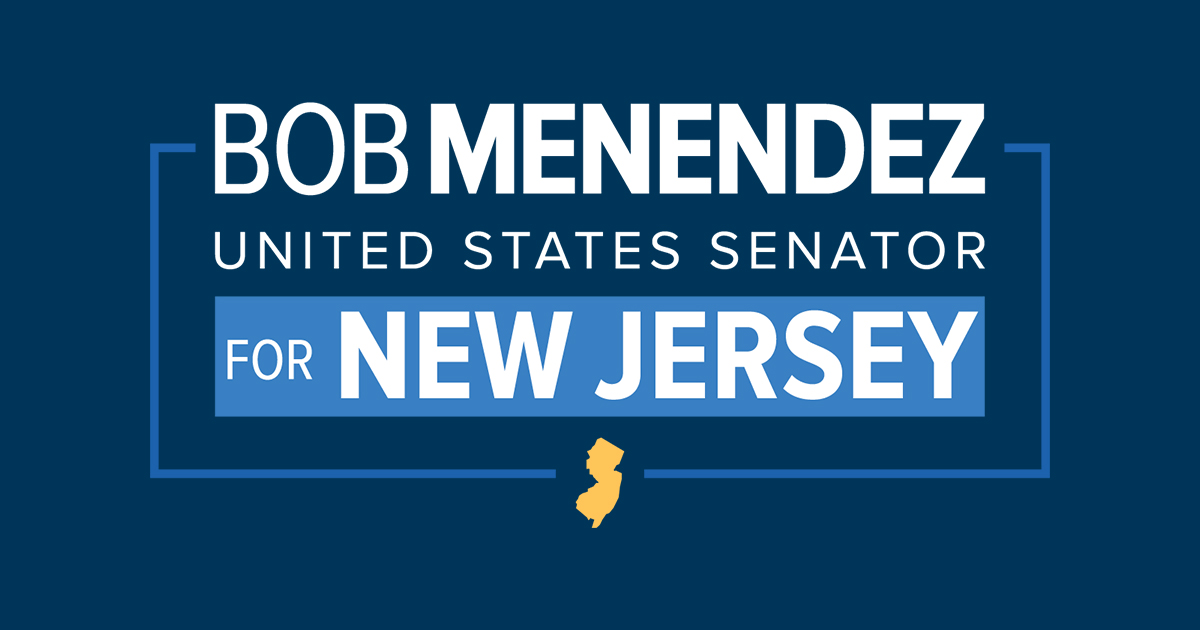Source: United States Senator for New Jersey Bob Menendez
WASHINGTON – U.S. Senator Bob Menendez (D-N.J.), Chairman of the Senate Foreign Relations Committee, today introduced the Economic Statecraft for the Twenty-First Century Act, new comprehensive legislation creating a whole-of-government approach to recommit U.S. leadership in the global economy. The new initiative, which comes as the Senate and House of Representatives begin the formal conference process to reconcile different versions of U.S.-China competition legislation, complements and expands upon provisions being negotiated – including on China’s economic coercion, supply chains, global infrastructure, artificial intelligence, and economic resilience.
“Twenty years ago, the common consensus was that by joining the international economic order, China would adopt principles of economic liberalization and personal freedom. But unfortunately, that hasn’t happened. Instead they are using their economic integration to pressure the developing world to choose between our system and our values of self-determination, respect for human rights, and openness – or theirs: of authoritarianism, repression, and censorship,” Chairman Menendez said. “It is time to have coordination. We need a new, whole-of-government approach. One rooted in the emerging geopolitical realities of a world more connected yet more complex than ever. And that’s exactly what my bill, the Economic Statecraft for the Twenty-First Century Act, will do.”
Unveiled in a speech to the American Leadership Initiative, Chairman Menendez made the case for overhauling U.S. competitive economic diplomacy so the federal government can be better equipped to outcompete China in five strategic domains of the 21st century – infrastructure, energy, technology, international financial institutions, and global resilience.
CLICK HERE TO WATCH AMERICAN LEADERSHIP INITIATIVE SPEECH
Menendez underscored the significant extent to which geo-economics plays a role in American national security and raised concerns that China’s brand of international economic diplomacy – or ‘manipulative investment’ – threatens global stability, the free flow of commerce, freedom of navigation, and the resolution of disputes consistent with international law.
“To create, shape, and set standards for the twenty-first century, America and our allies must show up. If we don’t, we risk seeing the rule of law in these countries washed away in a flood of Chinese cash. It is not too late, but time is certainly running out,” Chairman Menendez added. “Revitalizing the rules-based order and institutions built for the 21st century means dealing with the challenges posed by technology and artificial intelligence. It means being honest about how these advances can also lead to oppression and economic displacement. It means reforming our institutions in a way that delivers economic prosperity for all of our people. Our best hope at establishing the rules of the road for the future of global commerce is to work together.”
Find a copy of Chairman Menendez’s full remarks HERE.
Find a copy of the legislation HERE.
Find a section-by-section summary of the legislation HERE.
The Economic Statecraft for the Twenty-First Century Act (ES21)
- Confront – Directs a whole-of-government approach to confront China’s anti-competitive and predatory international economic policies along four lines of effort as it:
- Directs all levels of government to expose and respond to China’s economic coercion including:
- Requiring foreign assistance recipients to disclose debt to Chinese entities;
- Creating the Countering Chinese Economic Coercion Task Force;
- Defending states who support Taiwan against China’s economic coercion;
- Coordinating with the OECD on China’s Belt & Road Initiative.
- Assisting allies and partners through the Infrastructure Transaction and Assistance Network and CFIUS to establish disclosure regimes that reduce national security risks in their economies.
- Coordinates the Office of the Trade Representative, Customs and Border Protection, the State Department, the Commerce Department, and other agencies to expose and combat China’s anti-competitive foreign economic policies – including gross subsidies, dumping and intellectual property theft.
- Promotes coordination with allies and partners to implement export controls and secure critical supply chains including for semiconductors, critical minerals and pharmaceuticals.
- Directs all levels of government to expose and respond to China’s economic coercion including:
- Compete – Equips the federal government with important tools to compete with China in five strategic domains of the 21st century as it:
- Signals US support for global infrastructure investments through initiatives including Build Back Better World (B3W), the Blue Dot Network, the Three Seas Initiative, and by:
- Mandating the appointment of a Strategic Investments Officer at the Development Finance Corporation; and
- Requiring a strategy from the State department on pursuing nearshoring initiatives in to relocate supply chains to Latin America and the Caribbean.
- Orients diplomatic and foreign assistance agencies to work with allied counterparts and achieve energy security and global net-zero carbon emissions in 2050 including by:
- Authorizing the Assistant Secretary of State for Energy Resources, responsible for protecting energy security and promoting global clean energy production; and
- Establishing a clean energy development finance fund partnership between Development Finance Corporation and European Bank for Reconstruction and Development.
- Addresses the impact of critical and emerging technologies on international standards, human rights, democratic institutions and security alliances including by;
- Supporting the G-20’s principled and practical standards for international digital connectivity and trade; and
- Promoting international cooperation with allies and partners on artificial intelligence and R&D.
- Strengthens American commitments in the global economy and multilateral economic institutions – including the International Monetary Fund, World Bank, Inter-American Development Bank, and Asia Pacific Economic Cooperation Forum, by;
- Authorizing the transfer of SDRs to the Resilience and Sustainability Trust at the IMF, joining other developed countries in providing assistance to developing countries to recover from the pandemic; and
- Developing new ways to ease debt burdens for developing countries.
- Creates a State Department Office of Economic Resiliency and institutionalizes a whole-of government approach to improve global resilience against pandemics and other international shocks and stresses.
- Signals US support for global infrastructure investments through initiatives including Build Back Better World (B3W), the Blue Dot Network, the Three Seas Initiative, and by:
